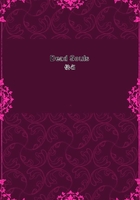
第90章
Simultaneously with his doing so, his old schoolmaster lost (through stupidity or otherwise) the establishment over which he had hitherto presided, and in which he had set so much store by silence and good behaviour. Grief drove him to drink, and when nothing was left, even for that purpose, he retired--ill, helpless, and starving--into a broken-down, cheerless hovel. But certain of his former pupils--the same clever, witty lads whom he had once been wont to accuse of impertinence and evil conduct generally--heard of his pitiable plight, and collected for him what money they could, even to the point of selling their own necessaries. Only Chichikov, when appealed to, pleaded inability, and compromised with a contribution of a single piatak[2]: which his old schoolfellows straightway returned him--full in the face, and accompanied with a shout of "Oh, you skinflint!" As for the poor schoolmaster, when he heard what his former pupils had done, he buried his face in his hands, and the tears gushed from his failing eyes as from those of a helpless infant. "God has brought you but to weep over my death-bed," he murmured feebly; and added with a profound sigh, on hearing of Chichikov's conduct: "Ah, Pavlushka, how a human being may become changed! Once you were a good lad, and gave me no trouble; but now you are become proud indeed!"[2] Silver five kopeck piece.
Yet let it not be inferred from this that our hero's character had grown so blase and hard, or his conscience so blunted, as to preclude his experiencing a particle of sympathy or compassion. As a matter of fact, he was capable both of the one and the other, and would have been glad to assist his old teacher had no great sum been required, or had he not been called upon to touch the fund which he had decided should remain intact. In other words, the father's injunction, "Guard and save every kopeck," had become a hard and fast rule of the son's.
Yet the youth had no particular attachment to money for money's sake;he was not possessed with the true instinct for hoarding and niggardliness. Rather, before his eyes there floated ever a vision of life and its amenities and advantages--a vision of carriages and an elegantly furnished house and recherche dinners; and it was in the hope that some day he might attain these things that he saved every kopeck and, meanwhile, stinted both himself and others. Whenever a rich man passed him by in a splendid drozhki drawn by swift and handsomely-caparisoned horses, he would halt as though deep in thought, and say to himself, like a man awakening from a long sleep:
"That gentleman must have been a financier, he has so little hair on his brow." In short, everything connected with wealth and plenty produced upon him an ineffaceable impression. Even when he left school he took no holiday, so strong in him was the desire to get to work and enter the Civil Service. Yet, for all the encomiums contained in his diploma, he had much ado to procure a nomination to a Government Department; and only after a long time was a minor post found for him, at a salary of thirty or fourty roubles a year. Nevertheless, wretched though this appointment was, he determined, by strict attention to business, to overcome all obstacles, and to win success. And, indeed, the self-denial, the patience, and the economy which he displayed were remarkable. From early morn until late at night he would, with indefatigable zeal of body and mind, remain immersed in his sordid task of copying official documents--never going home, snatching what sleep he could on tables in the building, and dining with the watchman on duty. Yet all the while he contrived to remain clean and neat, to preserve a cheerful expression of countenance, and even to cultivate a certain elegance of movement. In passing, it may be remarked that his fellow tchinovniks were a peculiarly plain, unsightly lot, some of them having faces like badly baked bread, swollen cheeks, receding chins, and cracked and blistered upper lips. Indeed, not a man of them was handsome. Also, their tone of voice always contained a note of sullenness, as though they had a mind to knock some one on the head;and by their frequent sacrifices to Bacchus they showed that even yet there remains in the Slavonic nature a certain element of paganism.